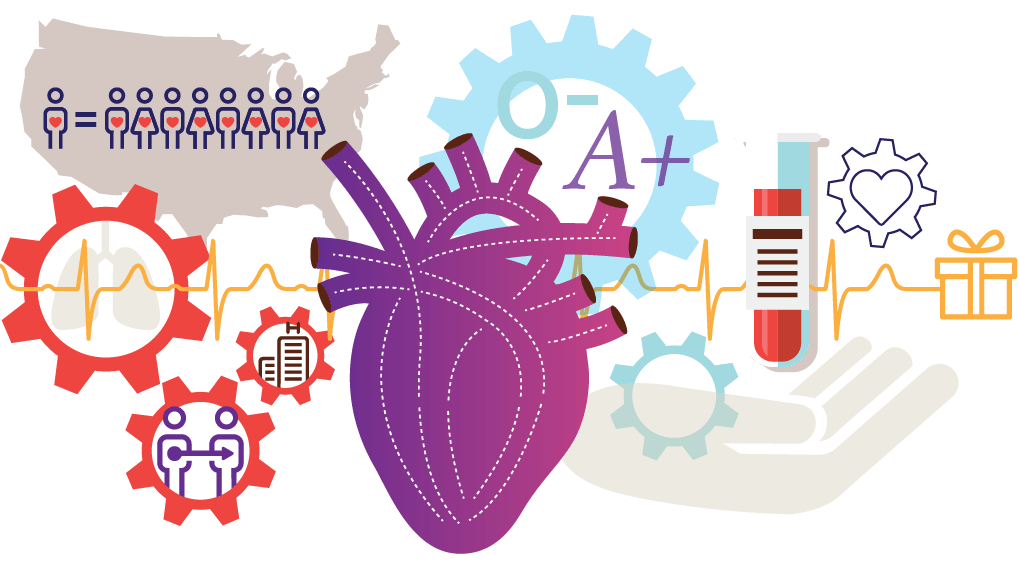Organ donation and transplantation involve thousands of clinicians, professionals and volunteers, collaborating to make the best use of a limited supply of organs.
The number of transplants performed in the United States has increased annually with more than 49,000 organ transplants performed in the U.S. in 2025. The national transplant system ensures patient safety, equity and efficient stewardship of the gift of life.
What organs can be transplanted?
Donated organs — from deceased donors or living donors.
Anyone can become an organ donor, no matter your age. Your medical condition at the time of death will determine what organs and tissue can be donated. If you would like to declare your choice to be an organ donor, be sure to enroll in your state’s donor registry and share your decision with your family and friends. Your decision to donate life can help to save many lives.
Frequently asked questions
Find answers to questions about organ donation and organ transplants, such as:
- How do I get on the national transplant waitlist?
- Where am I on the waitlist?
Waiting for your organ transplant
Waiting for a transplant is not like taking a number and waiting your turn. The waitlist is better described as a giant pool of patients. When a deceased organ donor is identified, UNOS’ computer system generates a ranked list of transplant candidates who are suitable to receive each organ. UNOS matches individuals waiting for a lifesaving transplant with compatible donor organs.
- Read FAQs about waiting list.

